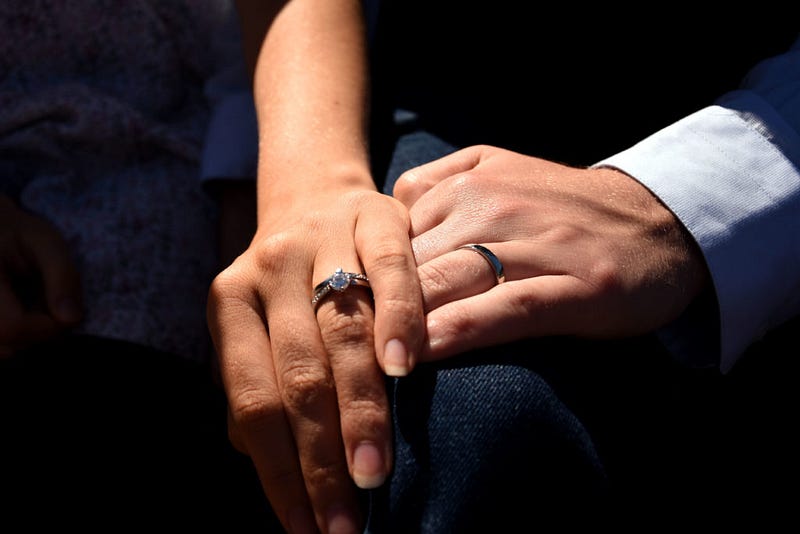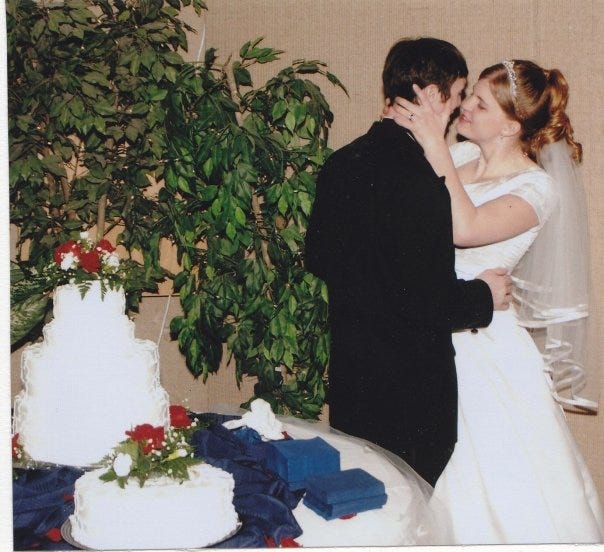Domesticated
Students reflect on the benefits and challenges on traditional and non-traditional relationships.
STORY BY TYLER BEARISTO | PHOTOS BY DAISEY JAMES
“Our first date? Well in November of our Freshman year, we went to a party together — like I asked her to come with m — “
“No way!” his girlfriend interjected, “that was definitely just a hookup.”
The couple burst into a simultaneous giggle, and Zoe wrapped one arm around the waist of her now long-term boyfriend Ashwin.
Being in a relationship has its many pros and cons, and many students learn to build their own list, prioritizing their lives usually based on personal experiences or social norms. Nowadays, it is becoming counter-culture to pursue long-term relationships while studying at college — and the idea of marriage seems to be the last on most students’ priority lists.
Western is no different. The vast majority of students remain unmarried as they work towards the academic and career goals many had made in their youth. However, some Western students choose a more domesticated lifestyle, opting to pursue either marriage or more serious, long-term relationships. Some students even choose both — opening up their marriages to polyamory.

After being together for 12 years, Western student Aaron Kirschenmann and his partner Christopher Reeves married three years ago.
“I guess the best part about my life is this constant support. I get to come home to stability and my husband — it’s pretty nice,” he says with a smile.
Aaron wouldn’t be considered a traditional student, in the sense that he didn’t come to Western to finish his undergraduate education until age 34.
“Being married while going to school has just made everything easier. Working towards your undergrad degree is hard enough without a support system and now I have a permanent one — what else could I want?” Aaron claims.
The Pew Research Center reported that in 2014, only 50 percent of adults over the age of 18 in the United States were married — a 24 percent drop from 1960. Not only are fewer people choosing to legally marry, but the average age for marriage has gone up drastically in the past few years as well — with the average age for women now being 27 and 29 for men.
In September 2015, just over a year and a half into their relationship, Ashwin and his girlfriend Zoe moved into a one-bedroom apartment together. After meeting in the Fairhaven dorms their freshman year, the two became friends and after almost 6 months, decided to pursue an exclusive relationship. Although they are choosing to devote so much time together and even share such living space, neither Ashwin nor Zoe would even consider marriage at this point.
Many students casually date while going to school, taking advantage of the ease of meeting people through nuanced dating apps like Grindr and Tinder; however, marriage for undergraduate students still hasn’t caught on.
“I don’t want marriage to just be the next logical step,” Ashwin says, explaining how he does not want to just get married because he feels obligated. “If we still are together and it’s the right time, and we have enough money, then who knows.” He let his words fall out of his mouth, a heavy sigh taking over and his voice trailing off.
After having been together for 12 years, marriage being a logical step was enough for Aaron and Chris.
Ashwin and Zoe both, too, want to be married at some point, but choose to not put too much pressure on their relationship with such a serious commitment such as marriage.
“I don’t really think it will make a difference for us right now,” Zoe says — her voice wavering slightly.
“Both our parents married young and now both are divorced so we were left in this role where we think maybe it’s best if we wait,” Zoe explains. “I actually know people our age who have already been married and divorced, and I just don’t think I am ready for that yet.”
As she spoke, her eyes fell and head turned — it was the only time she stopped looking at her significant other. The happy couple became two young, independent kids afraid of the consequences of divorce and not ready to move on.
Aaron is also a child of divorce, although it affected him in very different ways. “Yes it was hard — especially hard, but I guess I don’t see myself as the same person my parents were or are,” Aaron says. “I was afraid, a little, but not enough to make a difference.”
As the two sat across from each at the table, laughing and reminiscing, they seemed prepared to take on the world together. The two laughed together as they recalled especially important relationship milestones, reminiscing about how they first met, their first date, how nervous they both were. Both Ashwin and Zoe grew empathetically quiet in the same moments. Marriage is daunting to Ashwin and Zoe at this point. Neither are ready or willing to get married after experiencing the unsuccessful marriages of their own parents because of the fear of what could happen to them.
Recent Western graduate, Becky, however, found a different way to balance a young marriage with the daunting fear of growing up and growing apart.
“When we were married, my husband and I were each other’s first everything — we didn’t have the chance to explore dating while in college or just in general. So about three years ago, we decided to explore being open and then polyamory came shortly after that,” Becky says, describing how she found herself with both a husband and a boyfriend at 31 years old. She had also discovered, shortly after marriage, that she was bisexual, so opening up their relationship helped her explore that aspect of her identity, as well.
Despite being polyamorous, Becky still finds that being married makes some social aspects of college easier. “I don’t have to think about younger people liking me; I don’t have to worry about going out to party. There are not a lot of the same peer pressures that other students have.”

Both Becky and Aaron agree, however, that being married and in school at a more traditional age would have complicated things much more.
Becky and her husband were both attending a Mormon institution, sharing the faith, when they married. She says that many of her peers were getting married as well, making it easy to fit the mold, which is not the case here at Western.
“Western is geared towards those 18- to-24-year-old unmarried students and that’s just not me,” says Becky as her voice drops and laughter fades. Fitting in can be hard enough but as a married, nontraditional student, bridging that gap between a healthy marriage and healthy college social life proves even more difficult. “Feeling connected to the university is probably the hardest thing.”
Aaron is reminded of one of the biggest benefits being a nontraditional, married student has to offer for him — his husband Chris works full time. With his husband working, it takes the financial burden of paying for tuition and living expenses while juggling the stress of schoolwork off of Aaron and allows for him to focus almost all of his energy into his studies.
Although marriage and college don’t usually fall hand-in-hand, some Western students find themselves balancing a school life with the life of a more domesticated adult. As pursuing a long-term oriented relationship provides its many challenges, these students focus on the positives and find that their marriages and long-term relationships really benefit their undergraduate studies.
